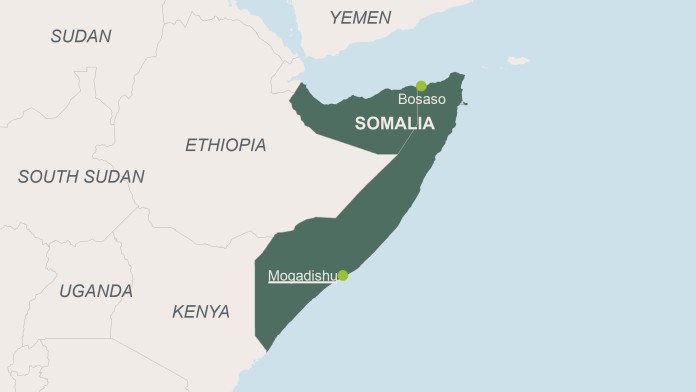

Somalia, the country at the head of the Horn of Africa, is in a difficult state-building process. Decades of military dictatorship and civil war had caused the state structures in Somalia to collapse. With a new, provisional constitution, the system of government was formally restored in 2012 and Somalia was transformed into a Federal Republic. However, various conflicts between and within the federal states and the influence of and fight against al-Shabaab are a heavy burden on the country.
Somalia has been affected by repeated droughts and absent rainy seasons in recent years. In addition, poverty and persistent violence often shape the everyday lives of the almost 16 million people who live in the country. According to estimates, 6 million people rely on humanitarian aid and many Somalis have been forced to leave their home regions. Unemployment among the predominantly young population is widespread. Despite a keen sense of entrepreneurship, there is often a lack of economic prospects. And those who make a living from agriculture and livestock farming see their own livelihoods particularly threatened by repeated droughts and are forced to leave their homes. Many municipalities are overwhelmed by the high number of internally displaced persons and returnees from abroad; the water supply in particular is not sufficiently developed to sustain these people.
On behalf of the German Federal Government, KfW is supporting Somalia in projects on
In many cities in Somalia, the infrastructure has been destroyed, is in need of renovation or is inadequate. At the same time, demand is increasing due to the large number of internally displaced persons, returnees from abroad and high population growth. On behalf of the German Federal Government, KfW Development Bank is supporting the reconstruction, expansion and improvement of urban infrastructure, such as water supply, roads, drainage channels, schools, hospitals and health centres.
KfW is financing a Cash for Work programme in the city of Baidoa. Internally displaced persons and returnees whose original home towns no longer provide a livelihood, as well as members of the host communities, are working together to expand the infrastructure of their communities. KfW is also supporting the construction of and provision of modern equipment for vocational school centres. The aim is to give young people better training.
KfW is supporting the expansion of the urban water and sewage system in Hargeisa. This will be of particular benefit to the poor population in unofficial districts, who will be supplied by the water kiosks. KfW is also financing a project for sustainable resource management in Somaliland. Farmers recover fertile land and conserve scarce water resources.
In order to visibly improve living conditions and strengthen people’s resilience in spite of the difficult situation, KfW is supporting food security, education, health care and agriculture in selected rural regions of Somalia through an integrated approach between the World Food Programme, UNICEF and the FAO.
Working on behalf of the German Federal Government, KfW promotes programmes that support the transition from humanitarian aid to development and peace.
KfW Regional Office Horn of Africa (Djibouti, Eritrea, IGAD, Somalia, South Sudan, Sudan)
Director KfW Office: Florian Rabe
Riverside Westlane
off Riverside Drive
P.O. Box 52074
00200 Nairobi
Kenya
+ 25 47 60 53 40
Fax: +25 42 04 22 82 22
